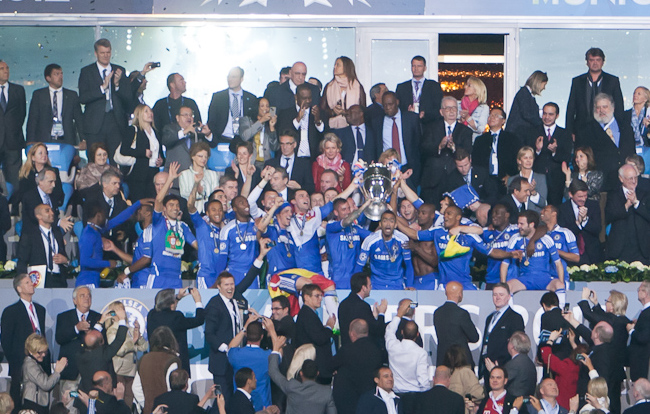Can Manchester City bring European success back to England?
Manchester City have dominated proceedings domestically. They're running away with the title and look on course to have it all-but wrapped up by Easter. Their reserve team looks set to make the Carabao Cup final and they're still battling in the FA Cup. Few would bet against them doing a domestic treble.

In days gone by, that would be sufficient to satisfy fans at home. Once upon a time, a simple league and cup double was the sort of achievement fans coveted. In the modern era though, a big club must do well in the Champions League to ensure supporters get the feeling of success. Sadly, English clubs have not been performing well at all.
It is six years since an English team made it to the Champions League final, when Chelsea beat Bayern Munich on penalties back in 2012. Few could imagine as Didier Drogba stroked home the winning spot kick that it would be so long before an English club would be back at the top of the European game.
It's been even longer since an English club managed to win a final outright, without the need for spot kicks. In 2008, Manchester United lifted the title thanks to John Terry's miss from twelve yards in the showpiece 'all-England' final. The reality of the achievement was dulled somewhat by an uninspiring final, lit up only by Didier Drogba once again but, this time, his dismissal for slapping Nemanja Vidic was his only noteworthy contribution.
Even in 2005, when Liverpool famously clawed back a three-goal deficit, the outcome was decided by spot kicks. No English club has won the Champions League in open play since 1999 when Manchester United famously snatched victory from the salivating jaws of defeat against Bayern Munich.
Why do English clubs ultimately fail to serve up a feast of football in the final? Even The Red Devils win came against a backdrop of 89 dire minutes, in which a clinical and efficient Bayern Munich controlled play. The last English club to win the tournament by a two-goal margin was Liverpool in 1977, whereas Barcelona, Real Madrid, and Inter have done it in the last eight years alone.
The English game is very different to continental Europe; there is far less emphasis on expression of skill and freedom of movement. Instead, we've cultivated a very 'English' way of playing, resolute at the back but apprehensive and cautious going forward. English sides, in the main, look to stop their opponents playing before actually playing themselves. Even when the final featured two English teams, they looked to counteract each other, leading to a tight and nervy affair.

Manchester City are very different. Inspired by Pep Guardiola, they excite fans with a collection of players always willing to get on the ball and make things happen. Ever since the arrival of the Abu Dhabi millions, they've had the resources to win the competition, but only now do they have the right blend of players and approach to truly write their names in history.
In 2016, they reached the semi-finals, eliminated by a solitary goal after a tense two-legged affair with Real Madrid. Manuel Pelligrini fell into the English trap of caution and perhaps even a little fear. At the season's conclusion, he paid the ultimate price with the arrival of Pep, a hero-of-sorts before he stepped foot in Manchester. In two seasons, he achieved what no English club has in three decades; he won the Champions League by two clear goals. The fact both came against Manchester United only underlines how much he would be revered for managing it a third time this season.
His Manchester City side recently only beat Bristol City by a two-goal margin in the Carabao Cup, conceding once but still winning the game. More often then not, when the Citizens play, both teams score, as correctly predicted by tipping site Oddschecker in their recent preview of the game against The Robins. However, his predilection for attacking football saw him lose a two-legged tie against Monaco in the last sixteen last season. They shared a 6-6 draw, eliminated only on away goals. In the summer, he stocked up on defenders, but defenders with an attacking mind too. This season, they look far better, free-scoring up top but with a new steel that would perhaps have seen them through last season's last sixteen. This Manchester City side might concede one but they'll score three or four and that is the right combination.
The last four winners of Europe's elite competition have been Spanish, six of the last eight finalists have also been Spanish. Their football in the Champions League has always been free-flowing, exciting, and focused on scoring goals. Now, in a cold corner of England, one of their own is plotting to break their dominance of the top club competition in the world and, if early indications are anything to go by, he could break the mould for English teams in Europe once and for all.